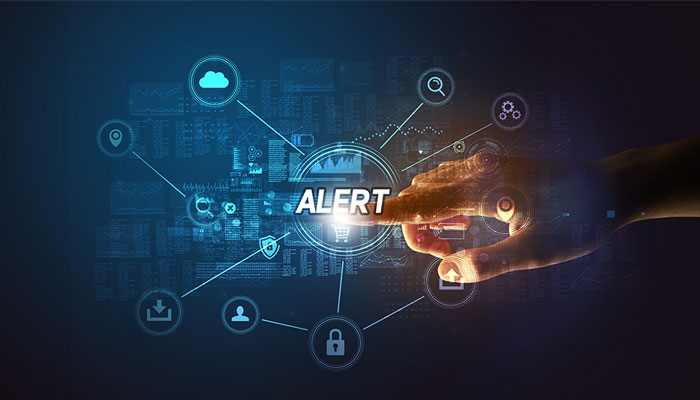Today’s call centers operate in a complex and ever-evolving regulatory environment. Failure to comply with industry regulations can result in hefty fines, lawsuits, and irreparable damage to your brand reputation. Maintaining high standards of compliance has become crucial for call centers to not only avoid costly penalties but also foster trust and customer satisfaction.
Instant Compliance Breach Alerts: Your Proactive Solution
Instant compliance breach alerts offer a powerful tool for call centers to proactively identify and address potential compliance violations. These real-time notifications act as an early warning system, highlighting irregularities or deviations from compliance standards during customer interactions.
Understanding Instant Alerts
Imagine a system that continuously analyzes call recordings, screen captures, and other relevant data points. Leveraging cutting-edge technologies like speech analytics and machine learning, it detects specific keywords, phrases, or patterns that may indicate a compliance breach. Imagine receiving immediate alerts for situations like an agent inadvertently disclosing sensitive customer information or failing to provide required disclosures during a sales call. This is the power of instant compliance breach alerts.
Why They Matter for Your Call Center:
- Minimize Risks & Costs: Avoid hefty fines, lawsuits, and reputational damage by addressing potential breaches promptly.
- Swift Action & Resolution: React quickly to investigate issues and minimize complications before escalation.
- Targeted Training & Improvement: Identify knowledge gaps and provide targeted training to strengthen compliance knowledge.
- Maintain High Standards & Trust: Foster a culture of accountability and build customer trust through consistent compliance
How Do Instant Alerts Help You Catch Compliance Breaches?
Active monitoring is the key to detecting compliance breaches as they happen. Instant alerts are sent to designated staff members immediately when a potential violation is identified, eliminating any lag time between the breach occurring and the notification being received.
By catching compliance breaches in real time, call centers can take immediate action to address the issue, minimizing the risk of further complications or regulatory violations. This prompt notification allows call centers to investigate the incident, gather evidence, and implement corrective measures swiftly, reducing the potential impact of the breach.
What Compliance Areas Should Alerts Cover?
Instant compliance breach alerts should cover a wide range of regulations relevant to a call center’s operations. These regulations can vary depending on the industry, geographic location, and the nature of the services provided. Some common examples include:
- a) Payment Card Industry Data Security Standard (PCI DSS): Alerts related to the handling and processing of credit card information, ensuring compliance with PCI DSS requirements.
- b) Health Insurance Portability and Accountability Act (HIPAA): Alerts for potential violations of HIPAA regulations, which govern the protection of sensitive health information.
- c) Telephone Consumer Protection Act (TCPA): Alerts related to telemarketing practices, such as adhering to do-not-call lists and providing required disclosures.
- d) Industry-specific regulations: Alerts covering regulations specific to industries like finance, healthcare, or telecommunications, ensuring compliance with relevant industry standards and guidelines.
How to Leverage Instant Alerts in Your Call Center?
1. Set Up Instant Notifications
Ensure key staff like the compliance officer, quality assurance team, and supervisors receive real-time alerts through multiple channels like email, SMS, or mobile notifications. Include essential details like the nature of the breach, the agent involved, and relevant recordings or screen captures.
2. Integrate with Your Existing Software/Systems
For seamless monitoring and reporting, it’s crucial to integrate the instant alert system with your call center’s existing software and systems. This integration should cover your call recording platform, screen capture tools, customer relationship management (CRM) systems, and any other relevant applications. By integrating with these systems, the alert system can continuously analyze data from various sources, ensuring comprehensive monitoring and accurate breach detection.
3. Train Staff on Protocols
Receiving an instant compliance breach alert is just the first step; it’s equally important to have well-defined protocols in place for responding to these alerts effectively. Conduct comprehensive training sessions for your compliance team, supervisors, and agents to ensure they understand the protocols to follow when an alert is received. These protocols should outline the steps to investigate the issue, gather evidence, escalate to relevant authorities (if necessary), and implement corrective actions.
4. Follow Up Every Alert with Corrective Actions
Whenever an instant compliance breach alert is triggered, it’s essential to conduct a thorough investigation and implement corrective actions to prevent similar breaches from occurring in the future. This may involve additional agent training, updating policies and procedures, implementing new controls and safeguards, or even disciplinary actions in case of serious violations.
For example, if an alert is triggered for an agent disclosing sensitive customer information, the corrective actions may include:
- Conducting one-on-one coaching with the agent to reinforce data privacy policies.
- Reviewing and updating the relevant policies and procedures for handling sensitive data.
- Implementing additional controls, such as masking sensitive data fields in the agent’s screen.
- Providing refresher training to all agents on data privacy and compliance regulations.
It’s crucial to document the corrective actions taken and establish a process for follow-up and monitoring to ensure the effectiveness of these measures.
By following these steps, you can effectively leverage instant compliance breach alerts to maintain a proactive approach to compliance management in your call center. This will not only help you avoid costly fines and legal consequences but also foster a culture of accountability, continuous improvement, and customer trust.
Best Practices for Instant Compliance Alerts
Implementing instant compliance breach alerts is not a one-time exercise; it requires a comprehensive approach and ongoing efforts to ensure its effectiveness. Here’s a checklist of best practices to follow:
1. Conduct A Thorough Risk Assessment to Identify Potential Compliance Vulnerabilities
Before implementing an instant alert system, it’s crucial to conduct a comprehensive risk assessment to identify potential compliance vulnerabilities within your call center operations. This assessment should cover all relevant regulations, such as PCI DSS, HIPAA, TCPA, and any industry-specific requirements. Involve cross-functional teams, including legal, compliance, operations, and IT, to gain a holistic understanding of your compliance risks.
2. Implement A Robust Monitoring System
Invest in a monitoring system that can seamlessly integrate with your call center’s existing infrastructure and provide analysis of customer interactions. The system should be capable of continuously monitoring call recordings, screen captures, and other data sources to detect potential compliance breaches as they occur. Additionally, ensure that the alert generation mechanism is reliable and can send notifications instantly to the designated individuals.
3. Clearly Define Roles and Responsibilities for Responding to Alerts and Escalating Issues as Needed
Establish a clear chain of command and define roles and responsibilities for responding to instant compliance breach alerts. Designate a compliance team or individual responsible for investigating and addressing alerts and outline the escalation process for situations that require immediate attention or involvement from senior management or legal counsel.
4. Provide Comprehensive Training to Agents and Staff on Compliance Regulations and Protocols
Compliance is everyone’s responsibility in a call center environment. Provide comprehensive training to your agents and staff on relevant compliance regulations, the importance of adhering to these regulations, and the protocols to follow when an instant alert is received. Regular refresher training sessions should be conducted to reinforce these concepts and ensure that everyone remains up to date with any changes or updates to the regulations.
5. Regularly Review and Update Your Compliance Policies and Procedures to Reflect Industry Changes
Compliance regulations are not static; they evolve over time to address new challenges and industry developments. Establish a process to regularly review and update your compliance policies and procedures to ensure they align with the latest industry standards and regulatory requirements. Stay informed about any changes or updates to relevant regulations and promptly incorporate them into your policies and training programs.
6. Conduct Audits & Quality Checks
Don’t let your system operate on autopilot. Regularly conduct audits and quality assurance checks to evaluate the effectiveness of your compliance measures, including the instant alert system. Review generated alerts, actions taken, and overall compliance posture. Identify areas for improvement and implement necessary changes to enhance your program’s effectiveness.
By embracing instant compliance breach alerts and following these best practices, you can proactively identify and address compliance issues, safeguarding your call center from potential risks, fines, and legal consequences. More importantly, it will help you maintain a consistent level of excellence in your customer interactions, fostering trust and enhancing your brand’s reputation.
Mitigate compliance risks with Instant Compliance Breach Alerts by QEval.




